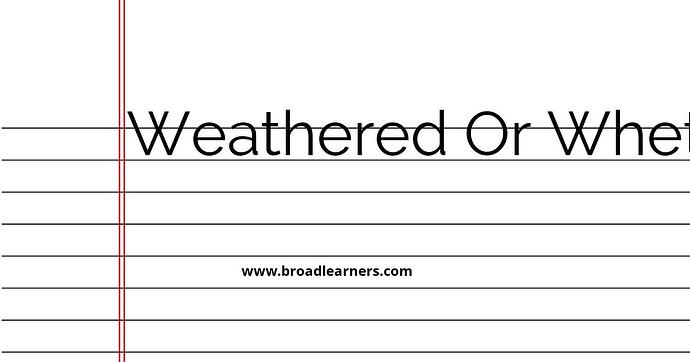'Weathered' and 'whethered' are commonly confused words in English grammar. Understanding the difference between 'weathered' and 'whethered' is important to use them correctly in written and spoken English.
'Weathered' is the past tense of the verb 'weather', which means to withstand or endure the effects of weather, time, or other external factors.
'Whethered' is not a word in standard English. The correct word is 'whether', which is used to introduce a choice or to indicate doubt or uncertainty.
Let's take a closer look at the meanings and usage of 'weathered' and 'whether'.
| 'Weathered' | 'Whether' |
|---|---|
| The word 'weathered' is the past tense of the verb 'weather', which means to withstand or endure. | The word 'whether' is used to introduce a choice or to indicate doubt or uncertainty. |
|
|
To remember the difference between 'weathered' and 'whether', it can be helpful to remember that 'weathered' is the past tense of the verb 'weather', while 'whether' is used to introduce a choice or indicate doubt.
Here are some examples of correct usage:
- The ship weathered the storm and arrived safely at the port.
- I'm not sure whether I should apply for the job or not.
- He has a weathered face from spending years working outdoors.
- She asked whether he had finished his homework.
Remembering the correct usage of 'weathered' and 'whether' will improve your grammar and communication skills.
